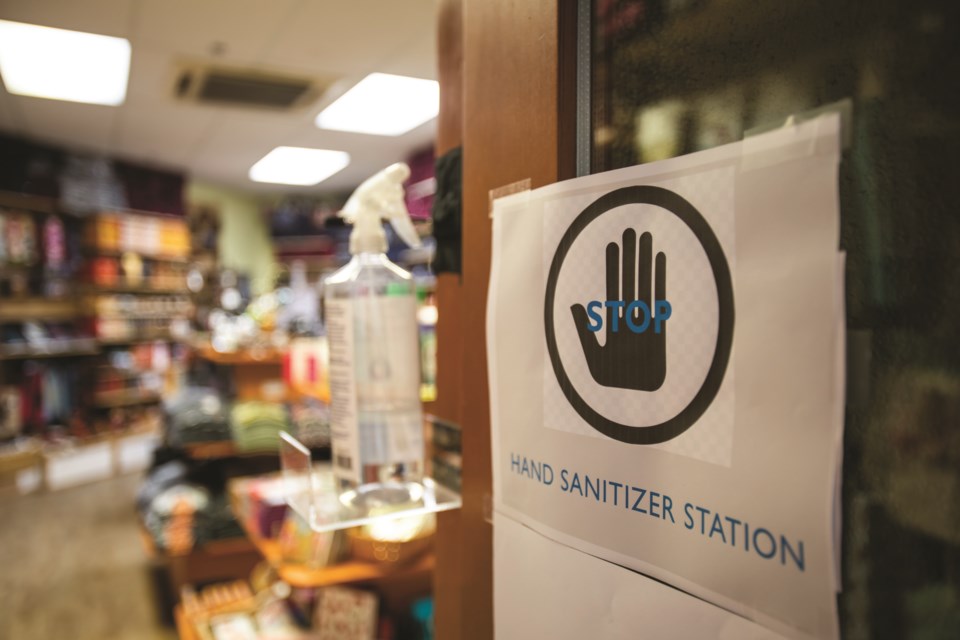As visitors slowly return to Whistler, local business owners are still very much weathering the COVID-19 storm in Phase 3, according to a Whistler Chamber of Commerce survey.
The survey, which closed Monday, July 13, polled 114 chamber members on everything from revenue losses and staffing to B.C.’s restart plan and which government supports they’re accessing.
The results show small business owners struggling to cope with complex and expensive new health measures, while painting a picture of uncertainty for both workers and employers.
A full 10 per cent of respondents said they don’t anticipate they will bring all of their employees back, while 19 per cent said they won’t hit that mark until 2021.
New health and safety regulations around physical distancing, disinfecting and capacity have proved frustrating in Phase 3, with 33 per cent of respondents saying it was very complicated to reopen. A further 38 per cent said the expenses involved with meeting the new regulations were expensive to very expensive.
“That tells you a story,” said Whistler Chamber CEO Melissa Pace. “It tells me that there’s some support needed there, for sure.”
With its next fiscal year starting Sept. 1, the chamber will be looking into offering some COVID-19 health and safety training, she added.
A whopping 87 per cent of respondents said they were accessing some form of government support (51 per cent using the wage subsidy; 28 per cent on commercial rent assistance; 27 per cent using the tax deferral and 26 per cent opting for the $40,000 loan available through the Canadian Emergency Business Account).
While Whistler’s summer has started to take on an almost normal vibe, the uncertainty of the fall remains a valid concern.
Forty-one per cent of respondents said that, once government support programs end, they will layoff or terminate employees, while 58 per cent said they will reduce employee hours.
Twenty-five per cent said they will close temporarily, and 22 per cent said they would take a loan, or incur more debt.
Two per cent of respondents said they will have to close permanently, and for a fortunate 16 per cent, it will be business as usual.
MLA Jordan Sturdy has been hearing from Whistler business owners as of late, “specifically on the [food and beverage] side, but also others, just that it’s been really challenging to get people to come back to work,” he said.
Twenty-eight per cent of survey respondents said employees were reluctant to come back to work because of health and safety concerns, while 31 per cent said there were “other” barriers to bringing workers back.
News from Prime Minister Justin Trudeau on July 13 that the federal wage subsidy will be extended to December is welcomed, Sturdy said, though he hopes to see additional clarity around the eligibility criteria soon, including the requirement that businesses show a 30-per-cent drop in revenue.
“With the extra costs associated with managing people as a result of COVID and with the reduced capacity, to meet the criteria for the wage subsidy I think will be problematic,” he said.
“Hopefully there’s a little more clarity later on in the week as to what is going to happen and whether you have to meet that 30-per-cent reduction in capital ... Combined with the reduction in income and the increasing costs, that’s a worst-case scenario for businesses, and it could really put a lot of people very much on the edge of collapse.”
In the meantime, the provincial government could further assist business owners through tax relief measures, Sturdy added, pointing to the Employer Health Tax as one example.
British Columbians can weigh in on B.C.’s COVID-19 recovery efforts until July 21 at engage.gov.bc.ca/recoveryideas.




